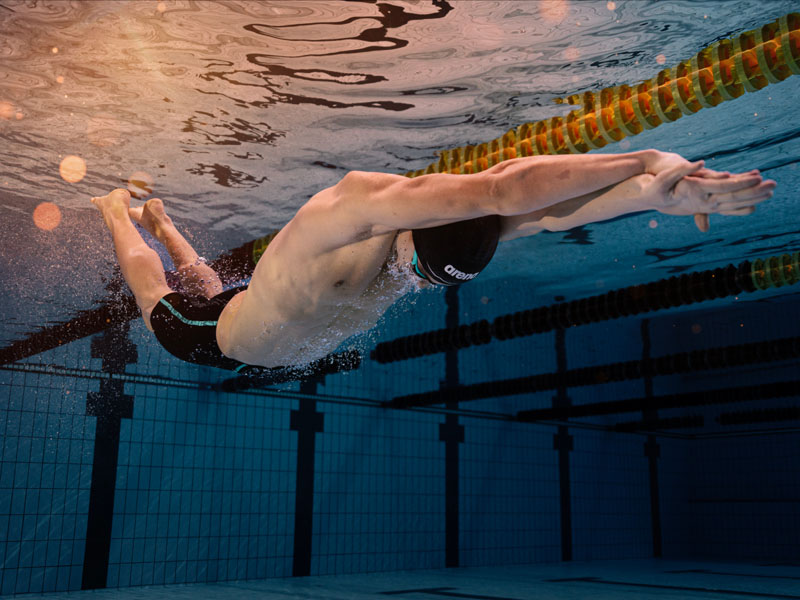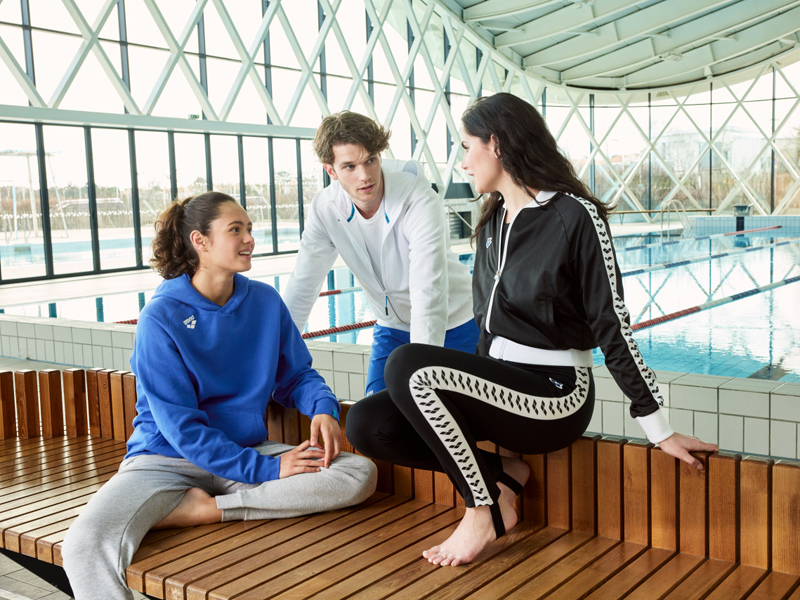4 New Year’s resolutions to apply to your swim training
The transition into a new year is often a time of self-reflection, especially for athletes looking to take their performance to the next level.
Determining which habits to carry through to 2025, and which ones to leave in the past, is an important way of shaping yourself as a swimmer. Although each individual athlete will have different goals and focuses, there are some relatively simple resolutions that are applicable to a wide range of swimmers.
The first is, in reality, such a general one that it could be relevant to all aspects of life, not just your athletic career; positivity.
A change in attitude is a huge adjustment and sounds like an extremely ambitious objective, so it can instead be broken down into smaller resolutions. For example, simply vowing to smile more on deck and during practices can have a huge impact on your nerves, or the way you approach difficult sets.
Also, cutting out negative phrases such as “I can’t” and replacing them with motivational ones like “I can do this” can help towards building your confidence as an athlete. Additionally, vocalizing words of encouragement by cheering on a team mate, or pushing a lane mate to continue working hard can create a positive environment which is crucial to sustain personal growth for each individual athlete. Over time, and through the combination of small goals like this, becoming a more optimistic athlete is an extremely feasible resolution.
On the same note, tackling the bigger issues in the water such as a weak kick, or an inadequate lung capacity can be made easier by simplifying them.
Fixing your kick is a huge undertaking when you look at it from the big picture, but trying instead to do five butterfly kicks off of every wall on the turns instead of only three is something that will inadvertently strengthen your kick, and is also applicable to most sets. Over time this task will become almost second nature, and will be something that can be applied to kicking with a board, or to kick outs during a race. Another example is a low lung capacity, which could be helped by again focusing on the details.
By concentrating on not breathing on your last stroke into the wall, or your first one out of a kick out, you have created something challenging, which is strengthening your breathing and is also practical for most workouts. By practicing small changes such as these ones, you can create habits, which then become routine for you, even in stressful situations such as racing conditions. They may not seem like things that make much of a difference, but they can help form valuable skills, and shave off precious time in races.
Another important resolution to consider when the ball drops on New Year’s is developing your organizational skills.
It is extremely stressful being an athlete, especially when you have other commitments such as school, a job, and a personal life. Making sure that you are using your time productively by creating weekly schedules can be a helpful way to make sure that everything gets done, and that your stress levels are minimized. You can use lists, calendars, daily reminders, phone alarms, and a whole other array of tools at your disposal in order to make sure all of your responsibilities are accounted for.
As a student athlete, I know how difficult it is to have to miss out on valuable practice time due to a buildup of homework, especially since it is something that can generally be prevented by spacing out your study time. This is a way of helping yourself out, and also goes a long way towards ensuring that you are able to remain committed to your rigorous training schedule.
Lastly, a resolution to make more time for team bonding activities is a great way for you to become closer to the people you train with.
Although you see each other every day (and often multiple times a day), having some fun outside of the pool deck or weight room can be a great way to relive stress, and getting to know one another better as more than just athletes can help strengthen your relationships. Swimmers are a rare breed, and developing friendships with people who understand your daily triumphs and struggles can be just the kind of thing you want to bring into your new year.
Written by:
Rebecca Gillis
Hi! I’ve been swimming competitively since I was eight years old, and enjoy documenting the ups and downs of life as an athlete. Most of my days are spent on the pool deck, since I also work as a coach for young children, and as a lifeguard. Other than that, I’m a full time student and, like so many of my fellow swimmers, a food/nap enthusiast.










